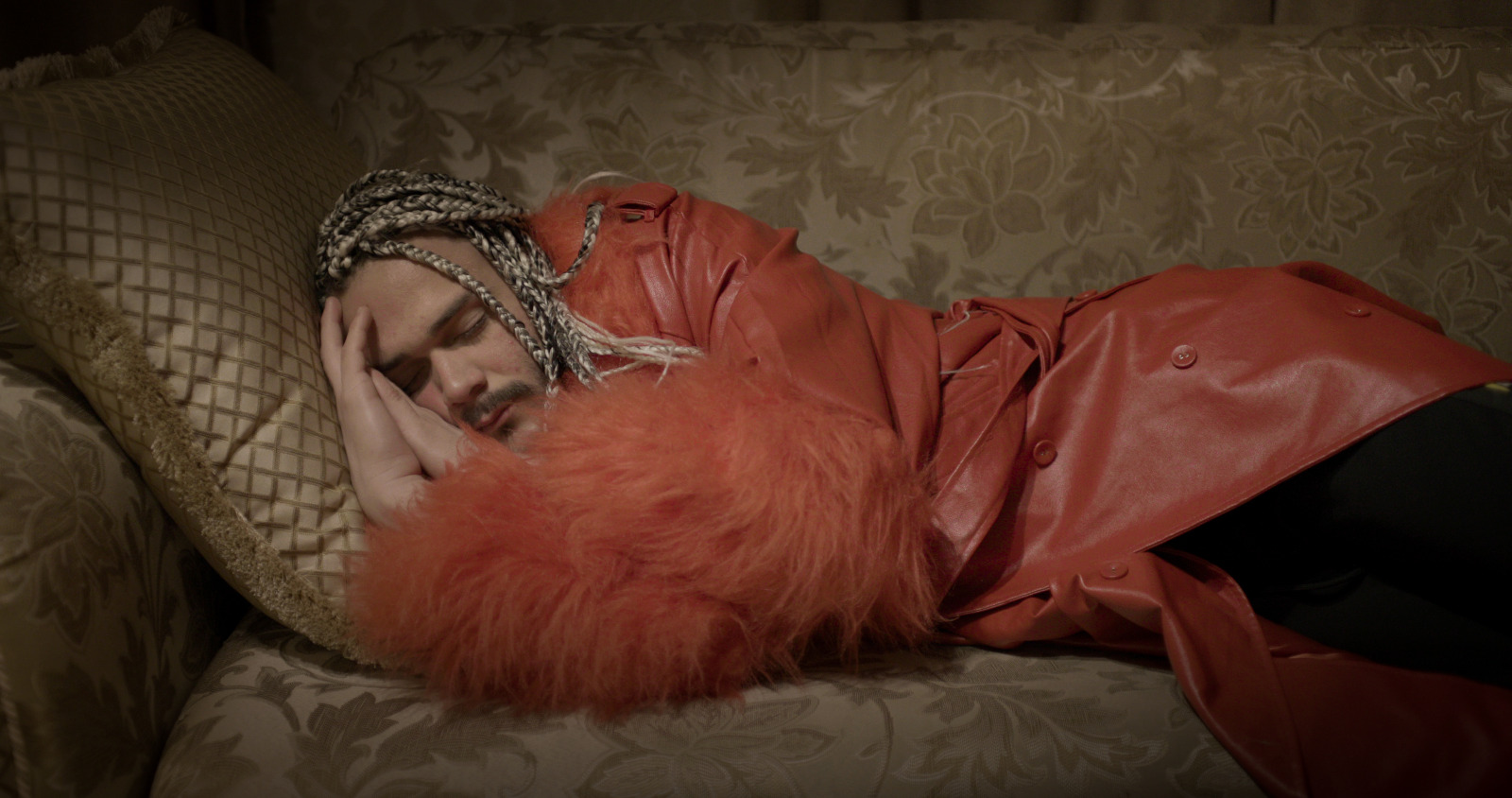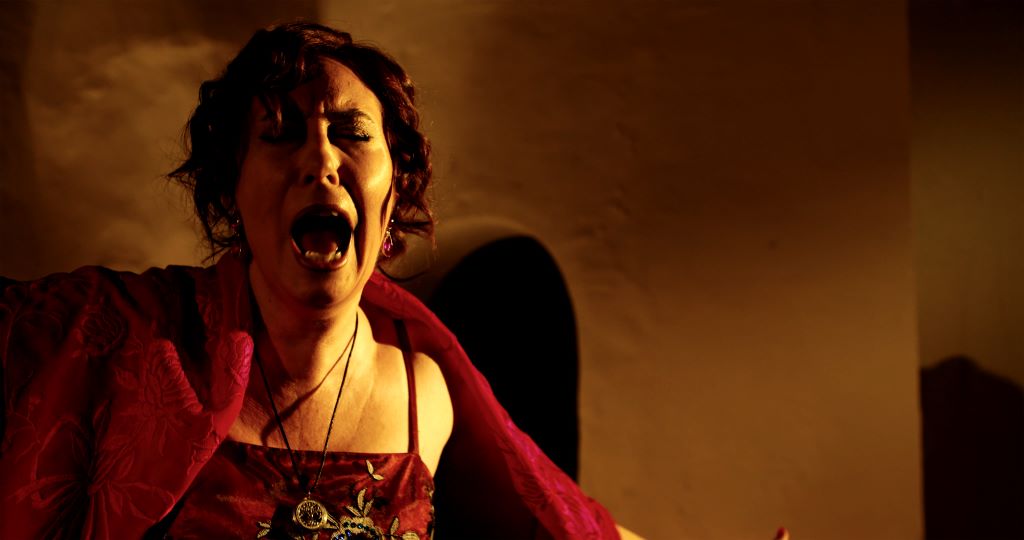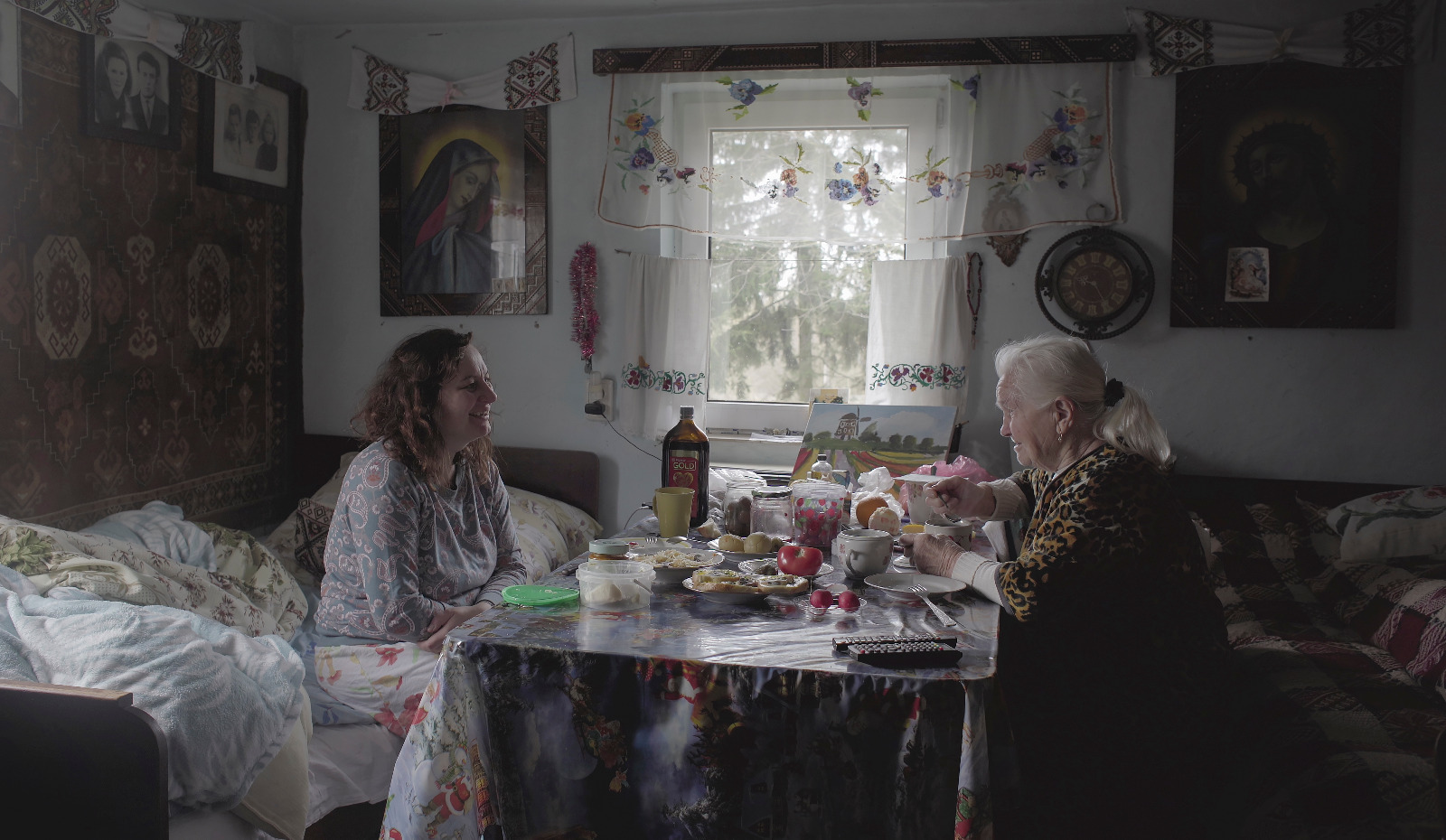Calls from Moscow
(Cuba/Germany/Norway, 66 min.)
Dir. Luis Alejandro Yero
Program: Markers (Canadian premiere)
“Crashing, hit a wall. Right now I need a miracle,” sings Daya in “Don’t Let Me Down.” The song appears only once in Calls from Moscow, but it echoes throughout the film. It plays from the phone of Dariel Diaz, one of the film’s four protagonists. He’s lying on his bed—bored, waiting, and passing the time with his phone connecting him with the outside world. The song choice might be on the nose, but it’s appropriate: he’s needs a miracle and all he can do is wait.
Waiting with him are Juan Carlos Calderón, Eldis Botta, and Daryl Acuña. The four queer Cuban men find themselves watching and waiting in Calls from Moscow as they share an apartment in the Russian city. Director Luis Alejandro Yero methodically observes the lives of these four men as they pass the days in limbo. The film captures the daily routines of Dariel, Juan Carlos, Eldis, and Daryl in Moscow as their visit unfortunately coincides with the eve of Russia’s invasion of Ukraine. They have no idea, really, how dramatically their lives will change. They’re glued to their screens 24/7 like the rest of us, but the film’s quiet power comes from realizing the freedom some of us have to put down the phone and connect IRL.
The Waiting Game
Calls from Moscow finds in these four individuals a collective story about the violence committed against queer lives in Russia. It also observes the challenges that migrants face while seeking better lives elsewhere. One hardly expects Mother Russia to be a haven for homosexuals, but the characters find themselves trapped after the relative ease of mobility brought them to Moscow in search of cheap labour without a need for visas. However, the film barely needs to leave the apartment to illustrate the limited freedom for queer people in Putin’s Russia. Calls from Moscow immerses audience in a safe space, if a boring one.
Make no mistake, though: Calls from Moscow is anything but boring. Rather, Yero’s artfully methodical observational film injects an essential perspective into the queer canon. Yero and cinematographer María Grazia Goya favour static long takes that capture the malaise of the waiting game. Shots observe as Dariel, Juan Carlos, Eldis, and Daryl stare at screens all day. They telework by day, selling pharmaceuticals and debating the pros/cons of Viagra with callers from afar. Other times, they dive into the rabbit hole of social media videos, like Instagram stories and TikTok bites. They watch fellow gays lip-sync pop songs and perform their own numbers as well.
When the characters in Calls from Moscow aren’t working or playing, they’re glued to their phones to connect with the outside world. Yero observes heartfelt video calls from Havana—chats with families, friends, and lovers. The phones offer intimate connections amid isolation. Moreover, Calls from Moscow smartly underscores the roles that phones, apps, and videos play in the queer community. On one hand, hookup apps offer meeting grounds, while countless lip-sync vids afford lifeboats. They might seem like pointless time wasters to some—and from Calls from Moscow, it’s hard to refute that characterization—they’re also bridges to like-minded peers, or reassurances that one isn’t alone.
Creating a Safe Space
The film evokes the power of technology to connect people worldwide as Yero films the characters alone. Although they split an apartment, they rarely share the screen. This conceit accentuates the suffocating alienation that Dariel, Juan Carlos, Eldis, and Daryl experience in Moscow. They have limited mobility and it isn’t safe to leave.
Moreover, Yero rarely takes the camera outside the apartment. When he does, Calls from Moscow offers shots of empty, snowy streets and the apartment’s exterior. Little traffic noise permeates the apartment. Aside from some updates about the war in Ukraine, there are few elements to mark the passage of time. Calls from Moscow could present a day, a week, a month, or years in the lives of these men. The film makes the viewer keenly aware of time and its slow passage through these long takes that pass for minutes before they break.
However, these characters are fighters. Yero finds elements of hope through messages and chats. Onscreen text offers updates as events unfold, and the director has little to go on besides intermittent notes on a messaging app and a busy cursor that lets him know they’re alive.
The aforementioned song that echoes from Dariel’s phone early on evokes the loss of sanity when trapped within four walls. But the words of the song go, “I think I’m losing my mind now / It’s in my head, darling, I hope / That you’ll be here, when I need you the most.” Calls from Moscow therefore offers a reminder that, despite all the screen fatigue we’re feeling, a few extra minutes to send a note can mean a world of difference for someone half a world away.
Calls from Moscow screens at Hot Docs 2023.
Get more coverage from this year’s festival here.











